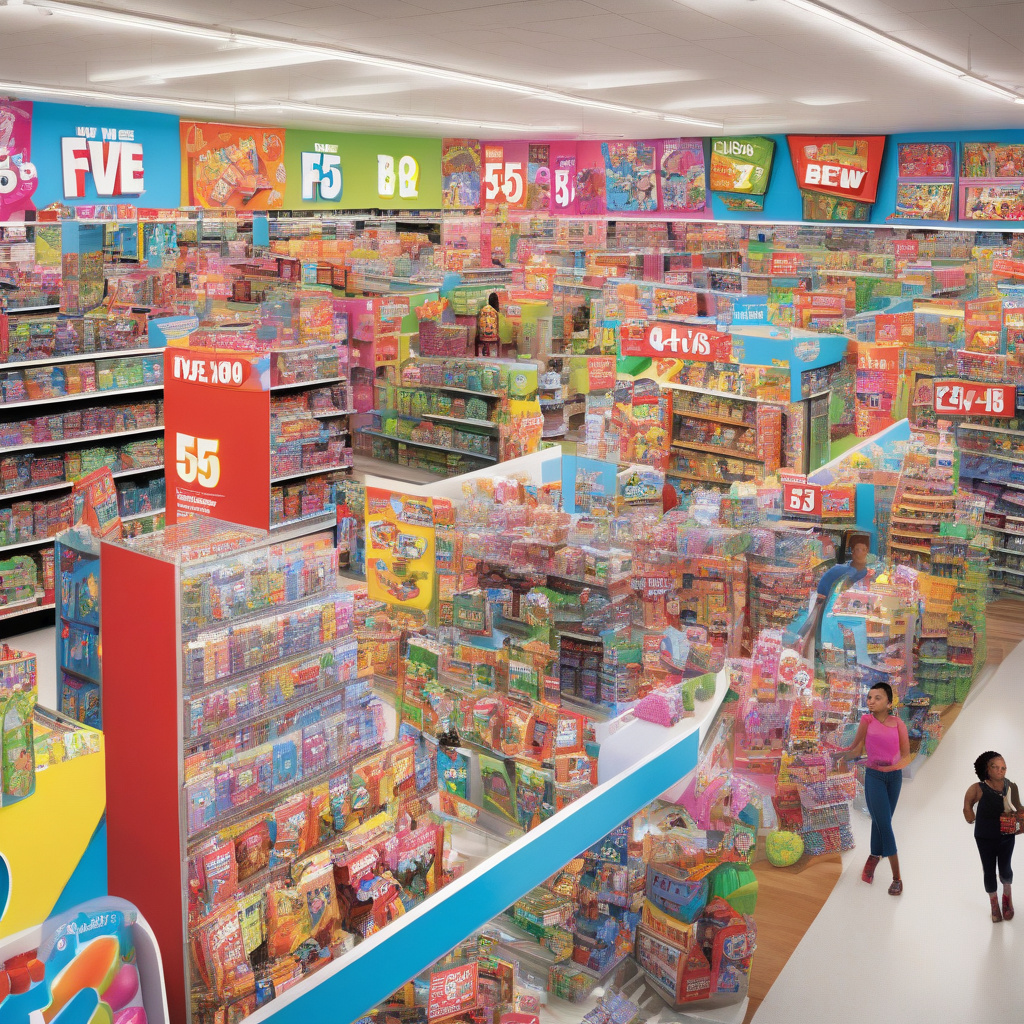Five Below Reportedly Refusing Orders From China
The retail landscape is rapidly shifting as businesses adapt to the ongoing challenges posed by global trade policies. Recently, Five Below, a popular discount retailer known for its assortment of trendy items priced at $5 or less, has reportedly suspended pending shipments from China. This decision appears to be a direct response to the increasing tariffs imposed on goods imported from the country, raising questions about the long-term implications for the retailer and its customers.
Five Below’s business model relies heavily on sourcing affordable merchandise, with a significant portion of its inventory coming from overseas suppliers, particularly in China. The retailer’s ability to maintain low prices has been a cornerstone of its appeal, drawing in budget-conscious shoppers looking for a diverse range of products, from toys to tech gadgets. However, the recent shift in trade dynamics could disrupt this model.
The tariffs, which have fluctuated over the past few years, were initially instituted as part of an ongoing trade dispute between the United States and China. These taxes impose additional costs on imported goods, effectively raising the retail prices for consumers. As a result, many retailers face a difficult choice: absorb the costs, which could erode profit margins, or pass them on to consumers, which could risk losing sales. For Five Below, a brand that thrives on its low-price promise, the latter option may not be feasible.
Reports indicate that Five Below’s decision to halt orders from China is not merely a temporary measure, but rather a strategic move to reassess its supply chain. By refusing shipments, the retailer may be seeking to renegotiate terms with suppliers or even diversify its sourcing strategies to mitigate the impact of tariffs. This approach could involve exploring partnerships with manufacturers in other countries or investing in domestic production to ensure a stable flow of goods without the added burden of tariffs.
In addition to the financial implications, the suspension of shipments raises concerns about inventory levels. As the holiday season approaches, maintaining adequate stock is crucial for retailers. Five Below’s success during this period often hinges on its ability to offer a wide variety of products that appeal to gift shoppers. If the retailer cannot replenish its inventory in a timely manner, it risks disappointing customers and losing market share to competitors who are better positioned to respond to supply chain disruptions.
Moreover, this decision may reflect broader trends in the retail industry. Many companies are reevaluating their dependence on overseas suppliers in light of recent challenges, including delays in shipping and increased costs. The COVID-19 pandemic highlighted vulnerabilities in global supply chains, prompting businesses to consider more localized sourcing options. For Five Below, the move to suspend orders could signal a shift towards a more resilient supply chain strategy, one that prioritizes flexibility and responsiveness over sheer cost savings.
Competitors in the discount retail space are likely watching Five Below’s actions closely. Retail giants such as Dollar Tree and Dollar General have also had to navigate the complexities of tariffs and supply chain disruptions. These companies may respond by adjusting their strategies, potentially creating a competitive landscape where agility and adaptability become key differentiators.
As Five Below navigates these challenging waters, it must also consider the impact on its customer base. The retailer has built a loyal following among young shoppers and families who appreciate its value proposition. If prices begin to rise due to tariffs, there is a risk that customers may seek alternatives that offer similar products at lower prices. Maintaining customer loyalty during this transition will be imperative for Five Below, especially as other retailers may capitalize on this opportunity to attract price-sensitive consumers.
In conclusion, Five Below’s reported refusal of orders from China serves as a critical reminder of the interconnected nature of retail, global trade, and consumer behavior. As the retailer reevaluates its supply chain strategy in response to tariffs, it faces both challenges and opportunities. The decisions made in the coming months will not only shape the future of Five Below but could also influence the broader retail landscape. Ultimately, how the retailer navigates these turbulent waters will determine its ability to maintain its beloved low-price promise while adapting to the realities of the modern marketplace.
#FiveBelow, #RetailTrends, #SupplyChain, #Tariffs, #BusinessStrategy
